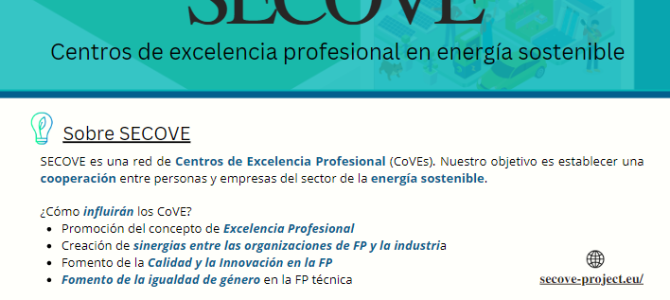1st Newsletter
Sustainable Energy in Vocational Education and Training at EU Level
Sustainable energy has emerged as a critical global concern, with the need to transition towards renewable energy sources becoming increasingly urgent. To address this challenge, vocational education and training (VET) institutions play a vital role in equipping learners with the knowledge and skills needed for a sustainable energy future. At the European Union (EU) level, concerted efforts are being made to integrate sustainable energy into VET curricula and promote a green workforce. This article explores the significance and initiatives regarding sustainable energy in VET at the EU level
1.Recognizing the Importance of Sustainable Energy:
The EU recognizes that sustainable energy is crucial for achieving environmental goals, reducing greenhouse gas emissions, and fostering economic growth. Therefore, it emphasizes the integration of sustainable energy principles across various sectors, including VET. By incorporating sustainable energy practices into VET programs, students gain a competitive edge in the job market and contribute to the EU’s sustainability objectives.
2. EU Initiatives Promoting Sustainable Energy in VET:
The EU has launched several initiatives to promote sustainable energy in VET. One such initiative is the European Skills Agenda, which aims to anticipate and address skills needs, including those related to sustainable energy. It fosters collaboration between VET providers, industry, and policymakers to ensure VET programs align with the evolving requirements of the green economy.
3. Enhancing VET Curricula:
The EU encourages VET institutions to revise their curricula to include sustainable energy-related topics. This involves integrating modules on renewable energy technologies, energy efficiency, green building practices, and sustainable transportation systems. By incorporating hands-on training, students gain practical experience in working with sustainable energy technologies, preparing them for the job market.
4. Partnerships with Industry:
Close cooperation between VET institutions and industry is essential for the effective implementation of sustainable energy education. The EU encourages partnerships with energy.
On this note, the SECOVE (Sustainable Energy Centres of Vocational Excellence) project partners have conducted a series of National Workshops, with the purposes of creating a bridge between the VET centres and the surrounding enterprises. On these workshops, the participants were questioned about the necessary steps that need to be taken in order to conduct a well-established cooperation with the educational organizations. If you would like to know more, please read the project’s 1st Newsletter here!


